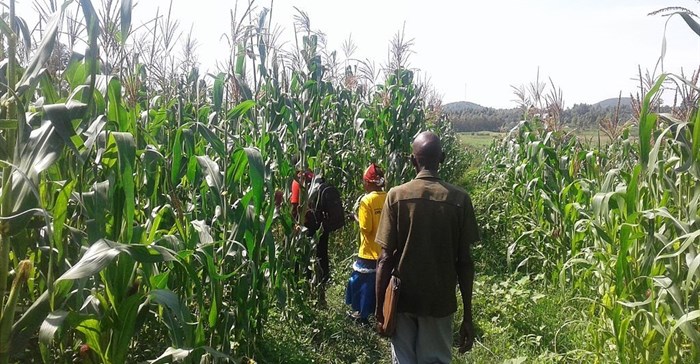Fall armyworm to cost more than $2bn in losses
According to the report, the armyworm is now a permanent challenge to the continent that largely depends on maize, spreading to 28 African countries just a year after it was first reported.

"Enabling our agricultural communities with quick and co-ordinated responses is now essential, to ensure the continent stays ahead of the plague," said Joseph DeVries, vice-president of programme development and innovation at Alliance for a Green Revolution in Africa (Agra).
Malawi will be the most affected by the armyworm, with the report forecasting that the infestation could wipe out between 12.5 percent and 30 percent of the country's agricultural economies.
In East Africa, Tanzania is expected to be the most affected by the destructive pest, with estimated yield loss of up to 3,238,980 tonnes, ahead of Uganda and Ethiopia with estimated yield losses of 1,391,109 tonnes and 3,054,727 tonnes respectively. According to Uganda's agriculture ministry, the worm wiped out 450,000 tonnes of maize worth $192.8m in the past crop season.
In Kenya, the pest has attacked more than 250,000 hectares of agricultural land, accounting for 11 percent of the country's maize crop, according to the latest statistics from the Ministry of Agriculture.
Research urgently needed
The report asked farmers to monitor susceptible crops to detect egg masses and young larvae, governments were asked to promote the awareness of the fall armyworm among farmers and communicate the recommended pesticides.
"Research is urgently needed, and an awareness and education effort is required so that farmers can monitor their fields and make decisions," said Roger Day, Cabi's sanitary and phytosanitary (SPS) coordinator.
However, experts have warned farmers about overusing pesticides to combat the pest as it may cause resistance - as witnessed in the America's where the pest was first reported. Although previous studies have shown that the worm feeds on more than 80 crops including millet, sorghum, rice, wheat and legumes, the pest prefers maize. The report estimates that it could cut yields of maize by up to 60 percent.
The African Union said the fall armyworm is now "high" on its agenda. Commissioner Josefa Sacko said that additional resources have been assigned to address the menace.
Source: allAfrica

AllAfrica is a voice of, by and about Africa - aggregating, producing and distributing 2000 news and information items daily from over 130 African news organisations and our own reporters to an African and global public. We operate from Cape Town, Dakar, Lagos, Monrovia, Nairobi and Washington DC.
Go to: http://allafrica.com/















